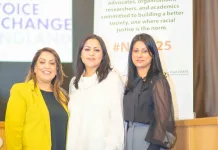
‘No radicalisation in British mosques’
Young Brits travelling to fight with extremist groups such as Daesh are not being radicalised in madrassas and mosques in the UK, Bradford Council for Mosques secretary, Zulfiqar Karim, said this week.
Speaking to the Home Affairs Committee, Mr Karim was joined by local imam, Fazal Dad, to discuss government plans that aim to closely monitor the faith institutions following Prime Minister David Cameron’s comments about ending ‘passive tolerance’ of extremist preachers.
Neither man said they had ever come across a single person with a sympathetic mentality towards Daesh, and instead suggested radicalisation was taking place elsewhere, in family or community settings.
Accepting the Prime Minister’s reiteration of the importance of promoting British values, Mr Karim added that ‘targeting certain religions or groups’ was counter to such ideology.
“We can’t influence foreign policy, but what happens on our shores is different to what goes on in wars,” he said.
“Mosques aren’t places where people are being groomed, but police are going into mosques too heavy-handedly and something needs to be done about that. Muslims are getting too many mixed messages.
“The issue lies with the home office, police and counter terrorist groups. We have to work together, target the right people with the right channels so we don’t feel tired, targeted and isolated by the government.

“There’s a breakdown in society. Once you’re in prison, there’s a reason you’re there. We need to reinforce British values, the idea of the network of family and there should be no religion that endorses hate or crime.
“Before 9/11, there were no ‘Muslim targets’.”
Representatives from the Home Affairs Committee will be visiting Bradford later this month to see for themselves what regulations are in place.
Both Mr Karim and Mr Dad slammed the current government’s ‘Prevent’ strategy when questioned on the topic, saying it is ‘simply not working’.
Explaining more about what they are doing in Bradford at the moment, Mr Karim added: “We took a stance because we feel like the organisations in place don’t represent mainstream Muslim communities.
“We make sure that in mosques we spread peaceful messages via sermons,” he said. “A key topic is how to distance yourself from Daesh. Some pockets of the community feel isolated. That’s where the challenges are.
“I think the team of advisors working with the government don’t represent us. The Muslim community is very complex and fragmented. Can London-based advisors represent national Muslims? We need that grass-roots level of involvement and the government aren’t doing that.”













